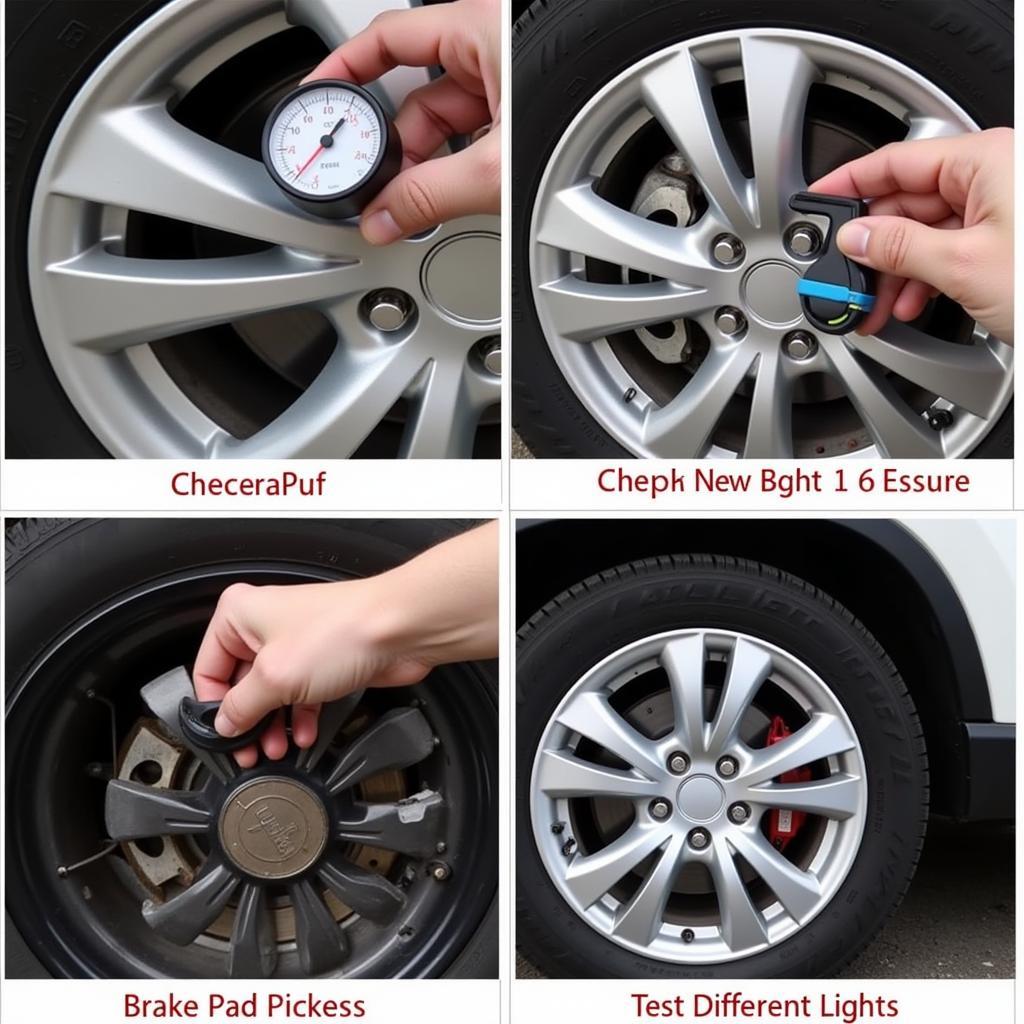Maintaining your car is crucial for its longevity, performance, and safety. Regularly scheduled maintenance can prevent major issues, save you money on expensive repairs, and ensure your car stays in top condition. Here’s a breakdown of the essential tips for car maintenance that every car owner should know:
Check Your Fluids Regularly
Fluids are the lifeblood of your car, and keeping them topped off is critical.
1. Engine Oil:
Engine oil lubricates moving parts, reduces friction, and protects against wear and tear. Check your oil level regularly using the dipstick and top off as needed with the correct type of oil for your car.
2. Coolant:
Coolant keeps your engine from overheating. Check the coolant level in the reservoir and make sure it’s full.
3. Brake Fluid:
Brake fluid helps to transfer pressure to your brake pads. Check the fluid level in the reservoir and ensure it’s above the “min” mark.
4. Transmission Fluid:
Transmission fluid lubricates and cools your transmission. Check the fluid level in the dipstick and top off as needed.
“It’s important to check your fluids at least once a month, or even more frequently if you drive a lot,” says John Smith, a certified mechanic with over 20 years of experience. “Checking your fluids regularly can prevent costly repairs and ensure your car is running at its best.”
Maintain Your Tires
Tires are the only part of your car that touches the road, so it’s vital to keep them in good condition.
1. Tire Pressure:
Proper tire pressure ensures optimal fuel efficiency, handling, and braking performance. Check your tire pressure at least once a month using a tire pressure gauge.
2. Tire Tread:
Worn tire tread can significantly reduce traction and increase your risk of accidents. Check your tire tread depth regularly using a tread depth gauge.
3. Tire Rotation:
Rotating your tires helps to distribute wear evenly and extends their lifespan. Rotate your tires every 5,000-7,500 miles.
“Tires are a critical safety component, so it’s important to keep them in good condition,” advises Susan Lee, a certified mechanic and expert in tire maintenance. “Regular tire maintenance can improve safety and prevent premature tire wear.”
Perform Routine Inspections
Regular inspections help identify potential problems before they escalate into major issues.
1. Air Filter:
A dirty air filter restricts airflow to the engine, reducing performance and increasing fuel consumption. Change your air filter every 12,000-15,000 miles.
2. Battery:
Your car battery powers your car’s electrical system. Check the battery terminals for corrosion and ensure the battery is securely attached.
3. Belts and Hoses:
Belts and hoses connect various components in your engine. Inspect them for cracks, wear, and leaks.
4. Spark Plugs:
Spark plugs ignite the fuel mixture in your engine. Replace spark plugs every 30,000-50,000 miles.
“Routine inspections are the cornerstone of preventative car maintenance,” emphasizes James Johnson, a certified mechanic with a focus on preventative maintenance. “By performing regular inspections, you can catch potential problems before they become major issues.”
Follow Your Car’s Maintenance Schedule
Your car’s owner’s manual provides a detailed maintenance schedule with specific recommendations for fluid changes, inspections, and replacements based on mileage or time.
1. Oil Change:
An oil change is one of the most important car maintenance tasks. Change your oil every 3,000-5,000 miles or as recommended in your owner’s manual.
2. Brake Pads and Rotors:
Replace your brake pads and rotors when they show signs of wear. This is usually around 30,000-40,000 miles.
3. Timing Belt:
The timing belt is a critical component that controls the timing of your engine’s valves. Replace the timing belt every 60,000-100,000 miles, as recommended in your owner’s manual.
“Following your car’s maintenance schedule is essential for maintaining optimal performance and avoiding costly repairs,” states Sarah Williams, a certified mechanic and expert in vehicle maintenance schedules. “Don’t ignore these recommendations, as they are designed to keep your car in tip-top shape.”
Keep Your Car Clean
A clean car is more than just aesthetically pleasing. It can also help prevent rust and protect the vehicle’s components.
1. Wash Your Car Regularly:
Washing your car removes dirt, grime, and other debris that can damage the paint and rust the metal. Wash your car every 2-4 weeks, or more frequently if you drive in harsh conditions.
2. Clean Your Car Interior:
Vacuum your car’s interior regularly to remove dirt and debris. Clean the upholstery with an appropriate cleaner and use a glass cleaner to clean the windows.
3. Wax Your Car:
Waxing your car helps protect the paint from the elements and gives it a shiny finish. Wax your car every 3-6 months.
“A clean car is a happy car,” concludes David Brown, a certified mechanic with a passion for car detailing. “Regular cleaning helps to maintain your car’s appearance and protect it from the elements.”
Conclusion
By following these car maintenance tips, you can ensure that your vehicle remains in excellent condition for years to come. Remember, preventative maintenance is key to avoiding costly repairs and keeping your car running safely and efficiently.
If you have any questions about car maintenance or need assistance with specific tasks, please contact us at AutoTipPro. We are here to help you keep your car running smoothly.
Contact us:
Phone: +1 (641) 206-8880
Office: 500 N St Mary’s St, San Antonio, TX 78205, United States
FAQ
Q: How often should I change my oil?
A: The general rule of thumb is to change your oil every 3,000-5,000 miles, but it’s best to consult your owner’s manual for specific recommendations.
Q: What are the signs of a bad battery?
A: Signs of a bad battery include slow starting, dimming lights, and a clicking sound when you turn the key.
Q: How do I check my tire pressure?
A: You can check your tire pressure using a tire pressure gauge, which is available at most auto parts stores.
Q: What should I do if my car overheats?
A: If your car overheats, pull over to a safe location and turn off the engine. Let the car cool down before attempting to drive again.
Q: What are some car maintenance sayings?
A: You can find some useful car maintenance sayings on our website.






Leave a Reply